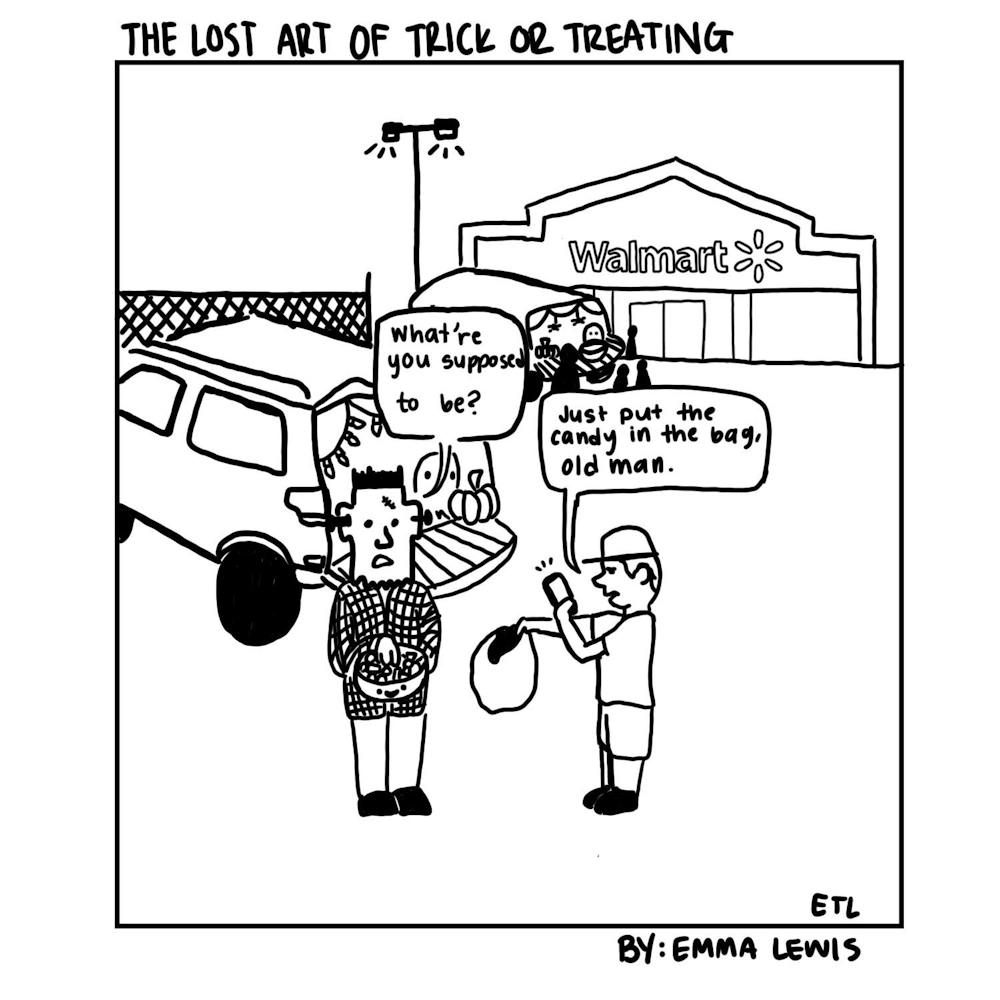Despite the tense black cats and aggressive orange gourds, Halloween is a unique practice in societal trust. In fact, Halloween may just be essential to preserving Americans’ trust, respect and admiration for one another.
The act of dressing unfamiliarly, panhandling for sweet neon sludge from your new neighbor is a bold declaration for domestic prosperity. A child’s memories of traipsing through a cool October night will instill in them a cautious fearlessness. Children can venture into the depths of their neighborhood, stand on a stranger's porch with the safety of their parents close behind.
If that sounds alarming to you that’s only because we’ve made it to be.
In the past few decades, our community has become increasingly alarmist, conspiratorial and suspicious. If you don’t believe me, just look at your aunt’s Facebook. You’ll be inundated with PSAs that warn of kratom in the KitKats, pedophiles’ phone numbers wrapped in a Fruit Roll-Up, or clowns trafficking more than bad jokes. All of these urban myths have proven to be just that, myths.
Our worrisome neurosis threatens to debilitate our dearest traditions. Now, the trick-or-treating tradition may conflict with modern parenting trends. As child psychologist Jennifer Lukomski said, “people who don’t normally let their child out unsupervised in the backyard are asked once a year to let that same child ring the doorbells of strangers and ask for candy.” Have we overwhelmed our children with “stranger danger” rhetoric to the point that any sort of societal trust is impossible? In fact, the chance of a child being abducted and harmed by a stranger is 0.00007 percent, and yet 59 percent of American parents are regularly worried about child abduction.
Of course, worry is natural. But at some point it crosses into the supernatural. Our suspicion has grown beyond a proportional response into a cultural sickness.
Our lack of trust in one another harms ourselves, our children and our holidays. That’s not just an anecdotal truth, but polled and proven.
Multiple studies by The Pew Research Center indicate that 79 percent of Americans say they’ve “far too little confidence” in one another. 64 percent of Americans agree that our country’s level of mutual trust has been steadily shrinking.
Our overly-critical, low-trust mentalities have led to decreased halloween participation all-around. The latest polling had only 35 percent of American families intent on trick-or-treating. Those children who do venture out are met with dim, undecorated doorsteps or ferried off to the overly sterilized pen that is a trunk-or-treat.




